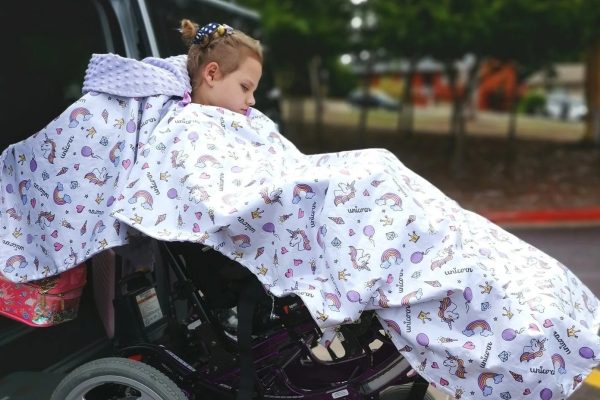
Just what the doctor ordered
By Rebekah Devlin
Once intimidating, cold and uncompromising, hospitals have made huge strides in becoming more inclusive, listening to parents’ concerns and embracing the total wellbeing of a patient, not just their immediate health needs.
A visit to hospital is rarely something to get excited about, unless of course there’s a bundle of joy on the way.
It is often a time of tremendous stress, worry, pain and emotional turmoil.
And unfortunately, disability can add an additional layer to all these areas. Many of our children and young adults experience lengthy hospital stays, invasive tests, procedures, fittings and emergency situations. So, it’s vital that hospitals understand and cater for their unique needs.
Too many of us have experienced less-than-ideal care from undertrained and unsympathetic medical professionals, but thankfully, hospitals all around Australia are putting genuine efforts into improving patient care.
“Equitable access to care for all children is an ongoing priority,” says Children’s Health Queensland.
In 2021, Children’s Health Queensland became the first paediatric healthcare provider in the southern hemisphere to be awarded ‘Gold Certification for Excellence in Person-Centred Care’ by Planetree International.
“Our unwavering commitment to the best outcomes for Queensland kids means we are always improving the way we care, teach and research,” CHQ says proudly.
“Our purpose is to improve the health and wellbeing of children and young people through world-class care, research, advocacy and leadership.”
CHQ has compiled this list of initiatives on offer across some of its hospitals, including the incredible Queensland Children’s Hospital.
These are services you may be able to access at your local hospital – or perhaps petition to make them available.
STAFF TRAINING AND COMMUNICATION INTIATIVES
In February, CHQ’s Child Development Service ran the first of a series of educational sessions for clinical and non-clinical staff, to increase understanding of ASD and how hospitals can best support autistic children and their families when they attend hospital as an inpatient, outpatient, or unplanned emergency visits.
Clinicians also actively seek advice from families and patients on what works best when communicating with their child, so individualised adjustments can be made for a better healthcare experience.
QUEENSLAND SPECIALIST IMMUNISATION CENTRE
Queensland Children’s Hospital provides vaccination advice and support for children with complex medical conditions, children who have experienced, or are at risk of an adverse event following immunisation, as well as children who have had failed attempts to vaccinate due to needle-phobia or anxiety. The team of immunisation specialists includes senior medical, nursing and allied health staff who have a range of distraction tactics and tools to support children to get their vaccinations, including virtual reality goggles and other sensory technology.
MUSIC THERAPY
QCH has a team of music therapists who engage children through music making, singing, therapeutic music listening and song writing to help with their emotional wellbeing and improve health outcomes while they are in hospital. Music therapy is used to:
- Make the hospital experience less daunting for children.
- Offer an engaging and enjoyable distraction while children are undergoing treatment.
- Decrease anxiety before/during medical and surgical procedures.
- Encourage children to express themselves (including their feelings and emotions about their illness/injury/condition).
- Help children manage pain.
See www.childrens.health.qld.gov.
VIRTUAL HOSPITAL TOUR
In 2017, in an Australian paediatric healthcare first, the QCH launched an online virtual tour of the hospital so patients and families can familiarise themselves with the building before their visit.
Developed using more than 11,000 photos to create 615 360-degree panoramic views across 12 levels of the hospital, the tour looks and functions like Google Earth’s street view feature, but allows users to ‘step’ right inside the hospital and explore the wards, outpatient clinic areas, and other facilities.
By allowing children to see the hospital and the specific areas they will be visiting in advance, it helps allay concerns for those with a range of anxiety-related conditions. A virtual reality viewer headset can also be used to provide a fully immersive ‘walk’ through of the hospital.
See https://www.childrens.health.qld.gov.au/qch/about-us/virtual-tour/
‘MY TRIP TO HOSPITAL’ VIDEOS
A series of videos make sure patients and families know what to expect when coming to the QCH, with topics covering the operating theatre, scans and equipment, the Emergency department, wards, and fun things they can do at the hospital.
See https://www.childrens.health.qld.gov.au/qch/visiting-staying/my-trip-to-hospital/






